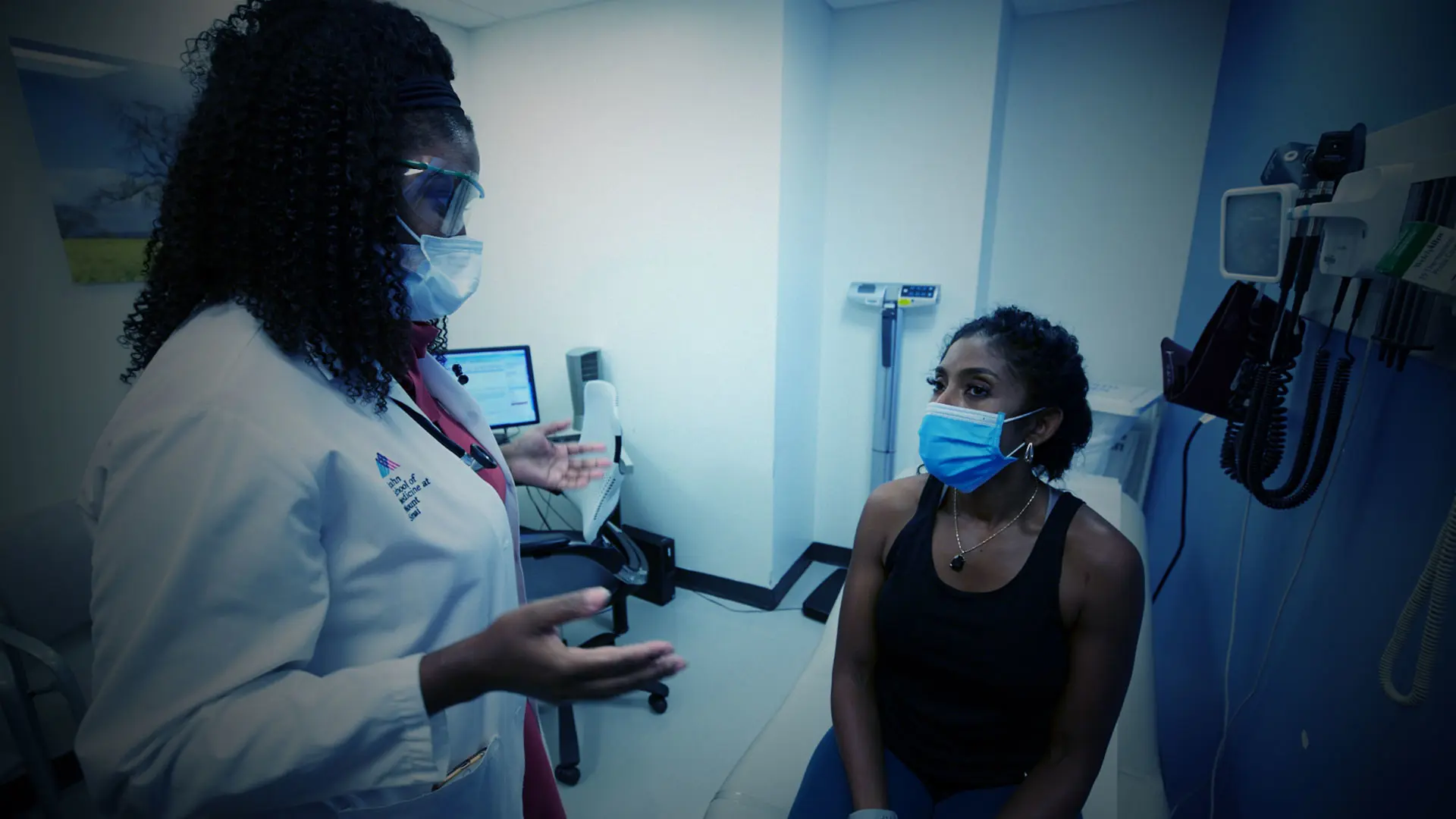Fully aware of the disproportionately high rates of chronic disease and mortality in underserved populations, Mount Sinai has made a commitment to bring its health care services and expertise to the doorstep of people who might otherwise lack access. COVID-19 served to accelerate that community outreach as the pandemic underscored the disparities in health care availability, affordability, and outcomes that were common across so much of the country and the world.
“It’s important for us as a major health care system to be a leader in addressing the inequities in care access and delivery that are occurring essentially in our backyard,” says Pascale M. White, MD, Assistant Professor of Medicine (Gastroenterology), Icahn School of Medicine at Mount Sinai, and Director of the Gastroenterology (GI) Clinic.
The GI Clinic is one of many at Mount Sinai that offers specialty care to patients who predominantly come from underserved areas in New York City. It is staffed by GI fellows and attending supervisors who provide comprehensive gastrointestinal services, including colorectal cancer screening. “We realize that we’re responsible and accountable to our patients, many of whom have multiple barriers impeding their ability to obtain preventive care,” says Dr. White.
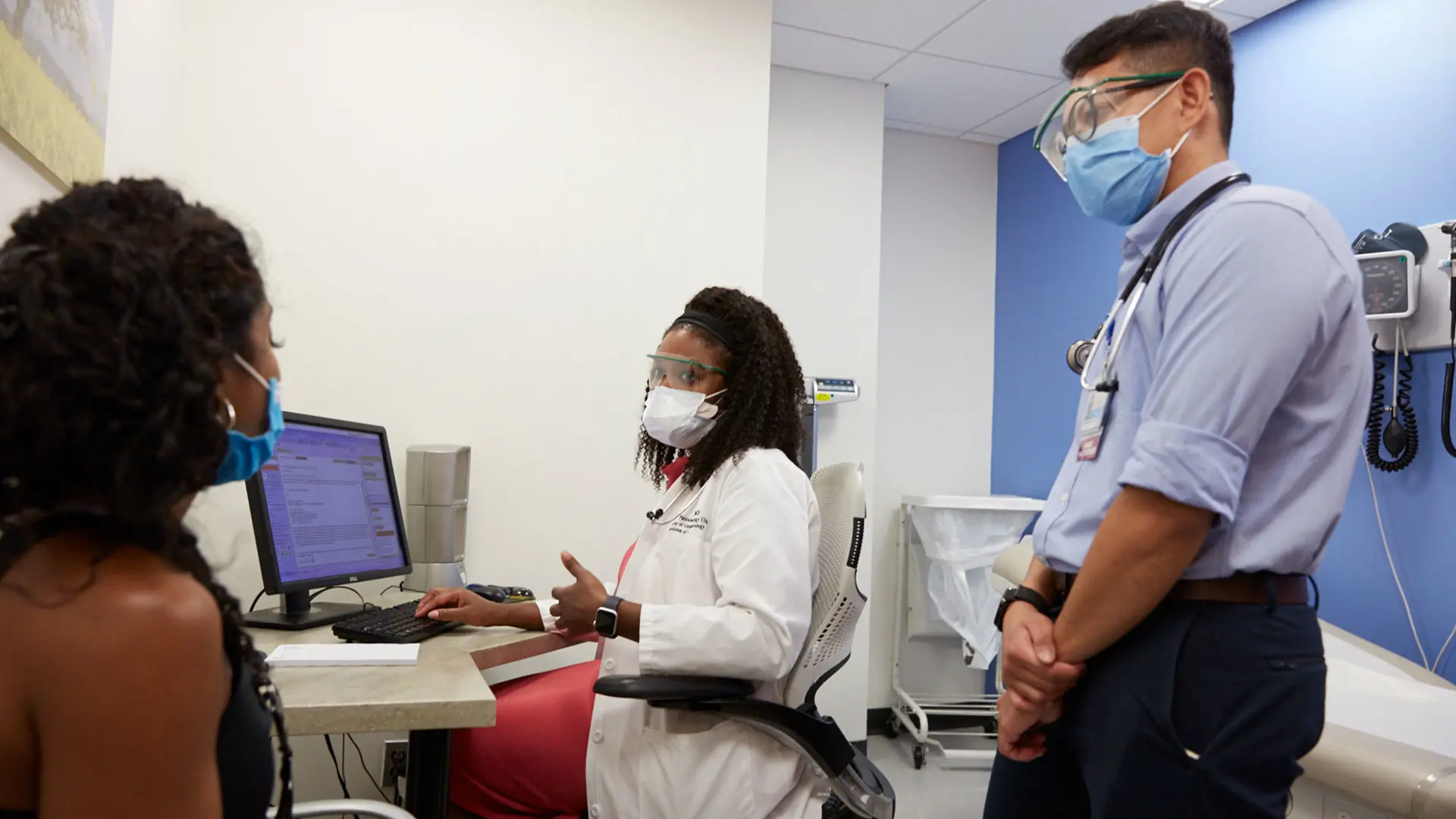
Pascale M. White, MD, left, with Kristoffersen Acoba, NP, and patient Karen Khan.
During her speaking engagements in the community, she focuses on the various life-saving screening modalities for colorectal cancer, a disease that has the highest incidence and mortality among African Americans. Dr. White is also actively engaged in medical education, informing trainees on patient, physician, and health system barriers to obtaining colorectal cancer screening among minority populations.
One barrier quickly uncovered during the pandemic was telehealth, and Dr. White, along with colleagues from other specialties, is part of a working group in the Department of Medicine examining how to address it. “Telehealth was a barrier because many of our patients either had no idea what it was, or did not have the means to access it through a computer and internet even if they did know,” she explains. “Our group is exploring what the barriers were in obtaining timely GI consultations during the pandemic in hopes that we can eliminate them and efficiently use telehealth to serve all members of our community.”
Another group exploring ways to improve health care delivery to underserved communities in the wake of the pandemic is CURE-19, a collaborative and research partnership among clinicians and scientists from multiple departments at Mount Sinai and two New York City public hospitals, Elmhurst Hospital Center and Queens Hospital Center. These institutions, which house large Icahn Mount Sinai residency training programs in Internal Medicine, care for disproportionately high numbers of undocumented, uninsured, and under-insured individuals. Noting that the work of these two hospitals “contributes vitally” to Icahn Mount Sinai’s mission of addressing health care disparities, Duncan Maru, MD, PhD, Associate Professor of Global Health and Health Systems Design, Medicine, and Pediatrics, asserts that “CURE-19 is identifying ways in which we can do much better as an institution to have an effective long-term partnership with the public hospital system.”
"We make sure these patients have access to the same testing and the same advanced equipment as patients in a private health care setting."
Rachel Miller, MD
Department of Medicine outreach is also linked to efforts around asthma and environmental allergens, which have historically taken a heavy toll on the respiratory health of people living in urban settings. Two clinics at the Institute for Advanced Medicine at Mount Sinai offer services to people with limited resources who have issues related to allergies and immunology, including asthma. “We make sure these patients have access to the same testing and the same advanced equipment as patients in a private health care setting,” stresses Rachel Miller, MD, Professor of Medicine (Clinical Immunology), and Environmental Medicine and Public Health, and Chief of Clinical Immunology at Icahn Mount Sinai. She cites the recent purchase of spirometry machines to measure lung function, now in use at both clinics.
Ensuring patients have access to medicines is also part of the focus on dismantling barriers to health care delivery. “Asthma biologics can cost thousands of dollars,” Dr. Miller points out, “and we do our best to provide access when patients really need them. I always like to think that whoever the patient is in front of me, I’m giving them the best care possible.”
In addition to its clinical focus, the work at Mount Sinai to address disparities among certain populations is centered on research conducted by clinician-scientists like Dr. Miller and Alison Lee, MD, Assistant Professor of Medicine (Pulmonary, Critical Care and Sleep Medicine), and Pediatrics. Dr. Lee, for example, is working with a cohort in New York City to investigate ambient air pollution exposure and how it relates to lung health, particularly asthma. “We know that low-income communities, and particularly those of color, are at the highest risk of developing asthma. Our hope is that this research will help establish an evidence base to inform government and other regulatory bodies of the need for stricter air pollution policies,” she says.
Dr. Lee’s work with air quality has taken her to Ghana, where she has been studying the effect of household air pollution from the burning of solid fuels in traditional cookstoves on lung health. “Worldwide, this is a huge problem because approximately 40 percent of the world’s population is exposed daily to high levels of air pollution from cookstoves,” she explains. “We’ve shown through our research in Ghana that household air pollution is associated with impaired infant lung function and increased risk for pneumonia in early childhood, the leading cause of death in children under five.”
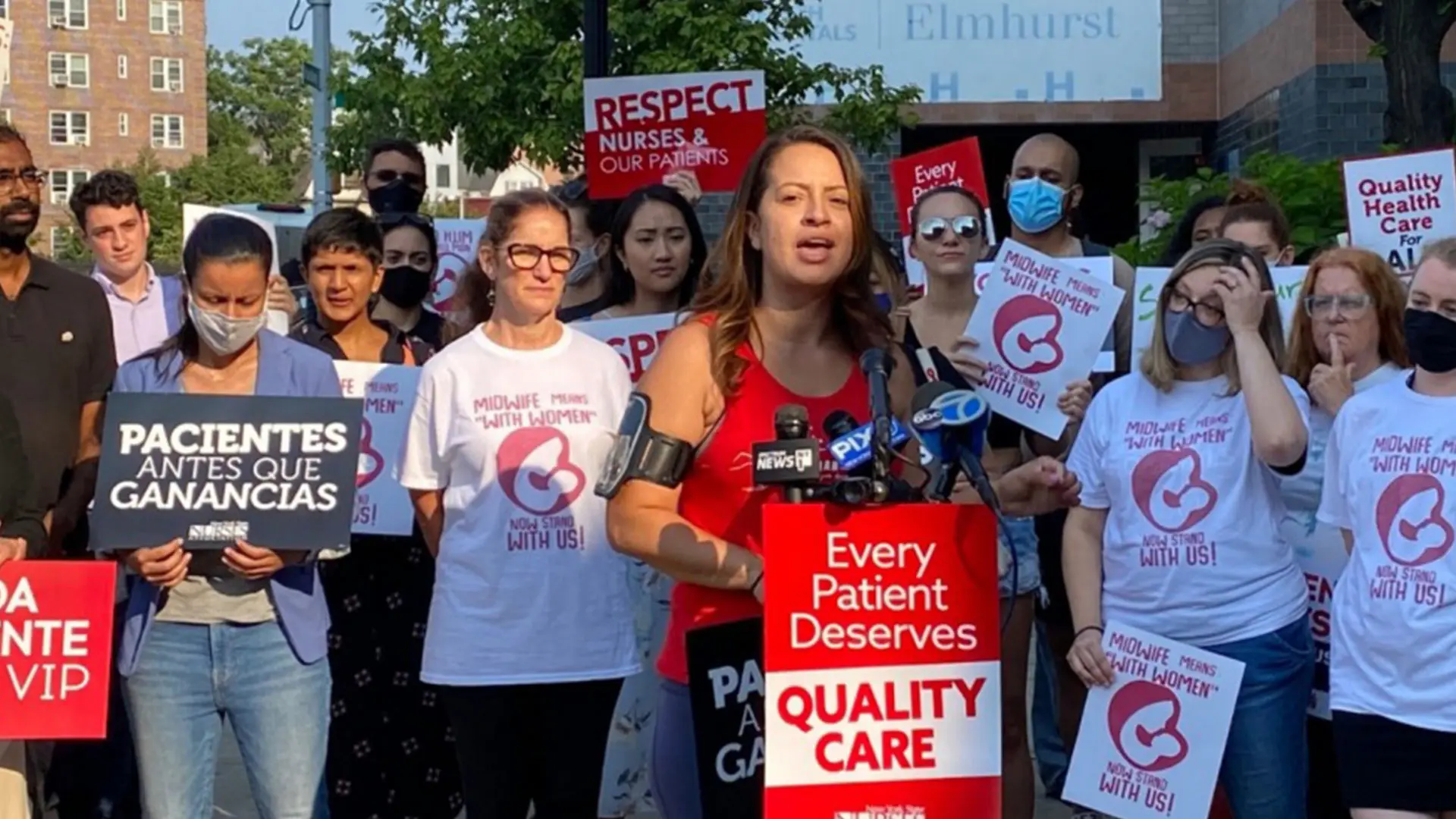
Department of Medicine faculty and students, including Duncan Maru, MD, PhD, left rear next to lamppost, participated in a demonstration on behalf of pay parity for midwives, a key racial, immigrant, and gender justice issue. Speaking was New York State Assemblywoman Catalina Cruz.
Featured
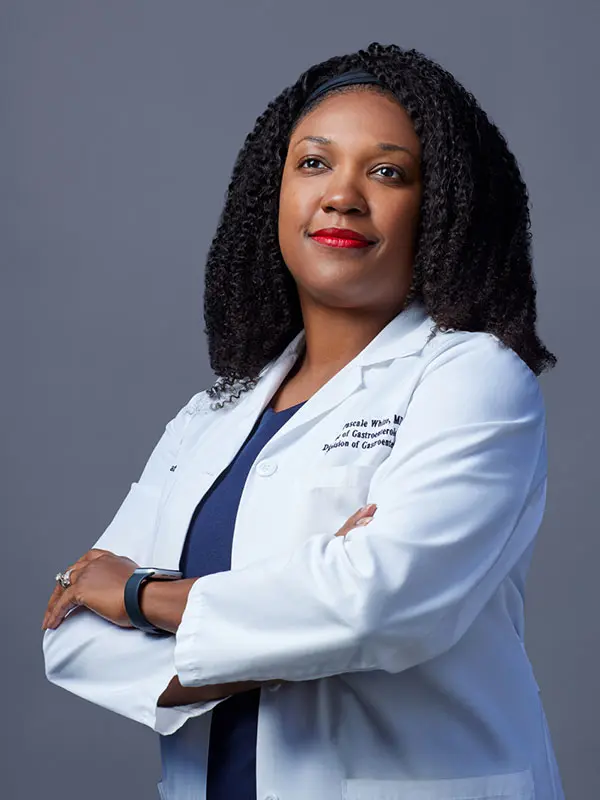
Pascale M. White, MD
Assistant Professor of Medicine (Gastroenterology)
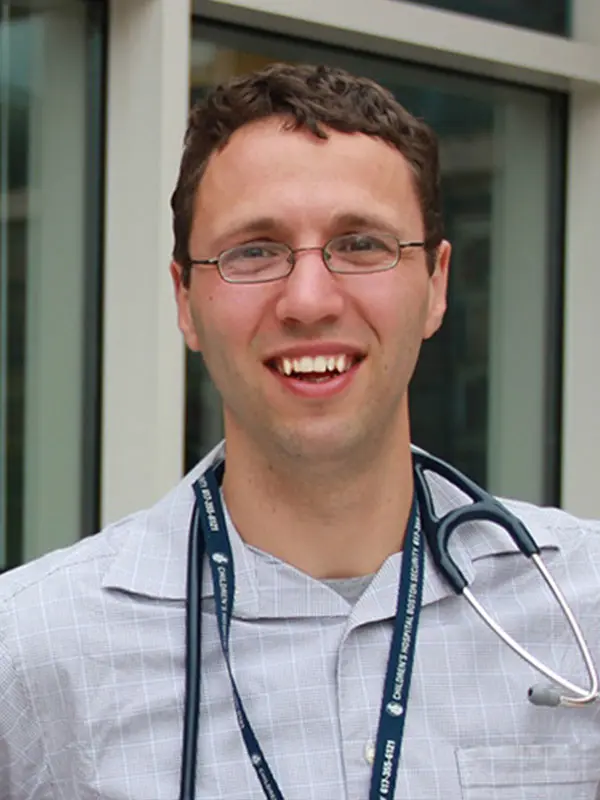
Duncan Maru, MD, PhD
Associate Professor of Global Health and Health Systems Design, Medicine, and Pediatrics
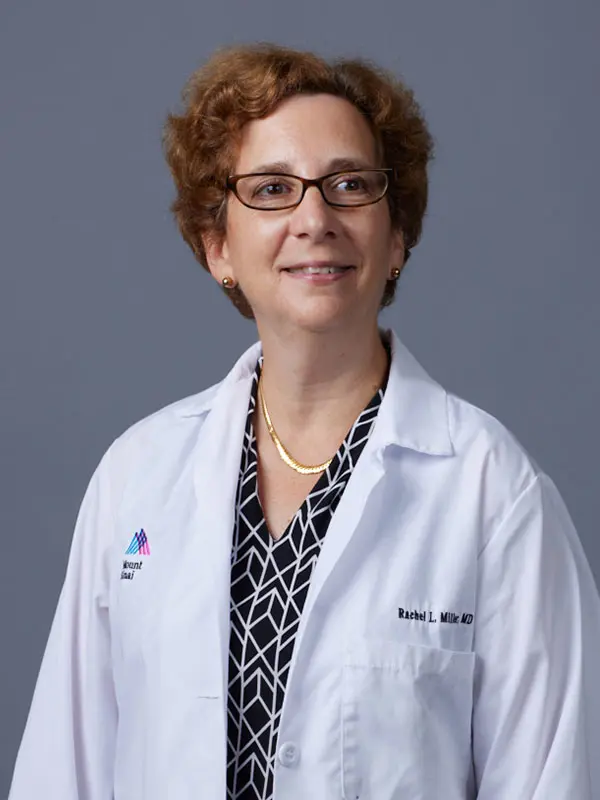
Rachel L. Miller, MD
The Dr. David and Dorothy Merksamer Professor of Medicine (Allergy and Immunology); System Chief, Division of Clinical Immunology; Interim Chief, Division of Rheumatology
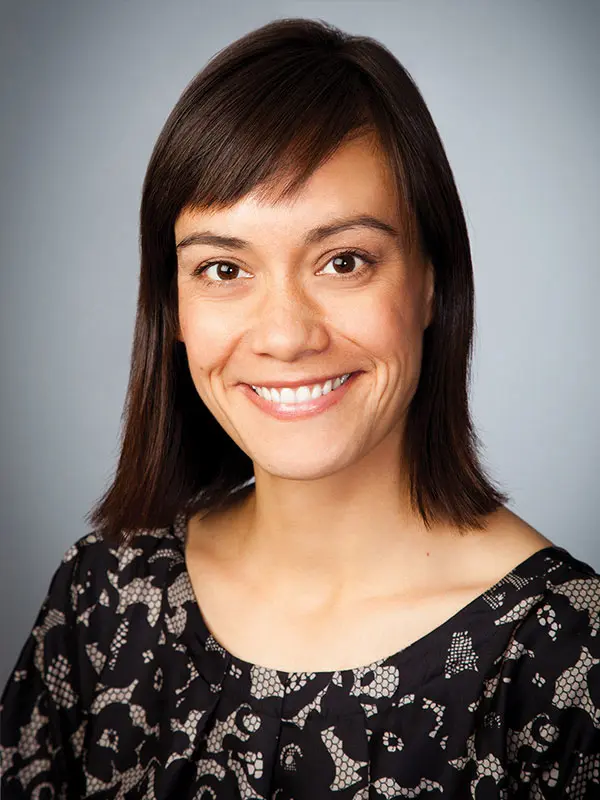
Alison Lee, MD
Assistant Professor of Medicine (Pulmonary, Critical Care and Sleep Medicine), and Pediatrics
